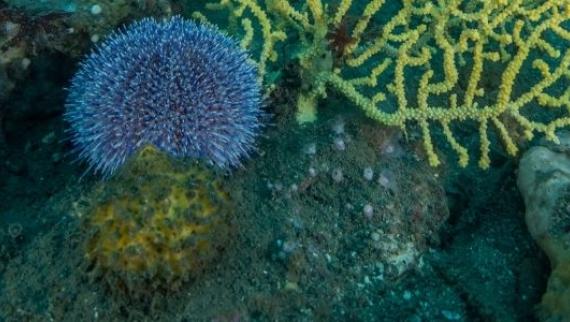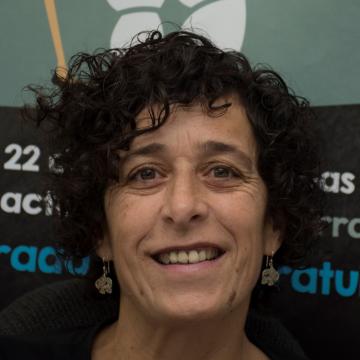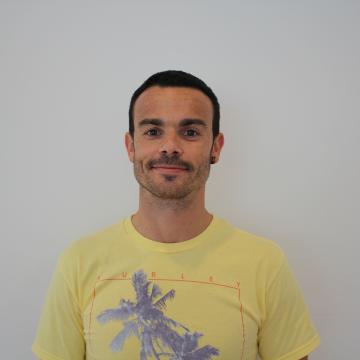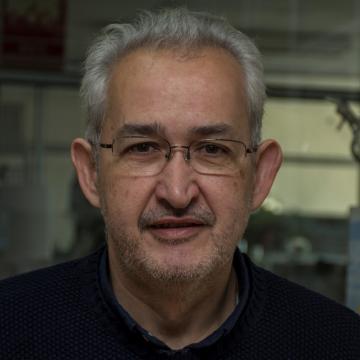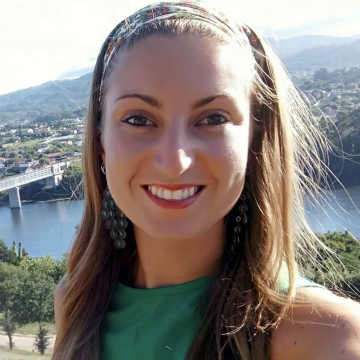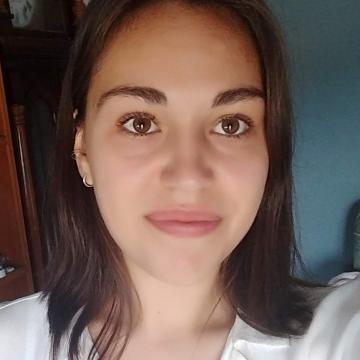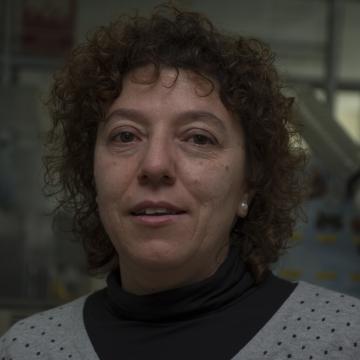Microbiology & Technology of Marine Products
In our quest to use research and innovation to benefit society, at the Institute we work to ensure food safety and quality in production systems.
This is the aim of the Microbiology & Technology of Marine Products group, also known as 'MicroTEC'. The group works to improve the quality and safety of fish and seafood products following the Farm to Fork strategy, ensuring sustainability whilst mitigating the impacts of climate change and other driving factors such as population migration and overgrowth.
Their food safety research is currently focused on the sociobiology of Listeria monocytogenes-harboring biofilms and deals with aspects related to the genetics, microscopy and ecology of these communities. Additionally, the group studies the interactions within these mixed communities, both intra- and interspecies, to contribute to the design of effective, target-specific and environmentally friendly protocols for antibiofilm sanitation.
MicroTEC also coordinates RISEGAL, the Galician Emerging Food Safety Risks Network, participating in the identification and characterization of emerging hazards in the food production chain. The network intends to anticipate food safety issues linked to climate change and build new resilient food production systems.
Lastly, within the scope of the Industry 4.0 framework, our current research on food quality aims to investigate non-invasive technologies, such as hyperspectral analysis, to assess the sensory properties and quality of fish and seafood products in an attempt to configure an intelligent and autonomous agri-food system.
- HIPERCAL -
<p>Programa Ciencias Mariñas: Tecnoloxía de análise hiperespectral para a monitorización da calidade de alimentos de orixe mariño</p>
Principal investigator:RodríguezHerreraJuan JoséFunding body:El Programa de Ciencias Mariñas de Galicia es 1 de los 5 programas de Ciencias Marinas de los Planes Complementarios de I+D+I con las CCAA del Plan de Recuperación Transformación y Resilencia (NextGenerationEU).Funding for IIM-CSIC:13019€Go to project pageFromto - BATEALERT -
<p>Programa Ciencias Mariñas: Batea Intelixente</p>
Principal investigator:RodríguezHerreraJuan JoséFunding body:El Programa de Ciencias Mariñas de Galicia es 1 de los 5 programas de Ciencias Marinas de los Planes Complementarios de I+D+I del Plan de Recuperación Transformación y Resilencia. Financiado por FEMP/FEMPA.Funding for IIM-CSIC:111066€Go to project pageFromto 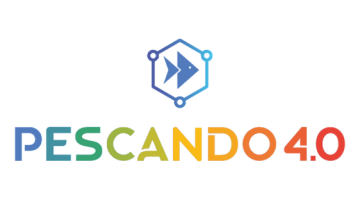 PESCANDO 4.0 -
PESCANDO 4.0 -<p>Plataforma Blockchain e IoT para garantizar la trazabilidad, seguridad, calidad y sostenibilidad en la cadena de valor de los productos pesqueros</p>
Principal investigator:VilasFernándezCarlosFunding body:PROYECTO FINANCIADO POR EL PLAN DE RECUPERACIÓN, TRANSFORMACIÓN Y RESILIENCIA Y LOS FONDOS EUROPEOS NEXT GENERATION EU EN EL MARCO DEL REAL DECRETO 685/2021 DEL 3 DE AGOSTOFunding for IIM-CSIC:145812€Go to project pageFromto- BIOTRANSFER -
<p>Polymicrobial L. monocytogenes-carrying biofilms as a key on the risk of listeriosis in foods</p>
Principal investigator:LópezCaboMartaFunding body:CSICFunding for IIM-CSIC:28557€Go to project pageFromto <p>Impacto de factores estresantes en los ecosistemas costeros</p>
Principal investigator:CobeloGarcíaAntonioFunding body:Ayudas cofinanciadas con fondos de la Agencia Gallega de Innovación de la Xunta de GaliciaFunding for IIM-CSIC:75000€Go to project pageFromto
- Gloria Sánchez Moragas; Mónica Carrera Mouriño; Esteban Abad Holgado; Ana Allende Prieto; Marta Fernández García; Pilar García Suárez; Belén Gómara Moreno; Marta López Cabo; Wenceslao Moreda Martino; Francisco Javier Moreno Andújar; Lourdes Ramos Rivero; Deni Vélez Pacios (2021) Chapter 7: Food Safety " White Paper 6: Sustainable Primary Production" Consejo Superior de Investigaciones Científicas
- Kocot, A.M.; Wróblewska, B.; Cabo, M.L. (2021) Operational culture conditions determinate benzalkonium chloride resistance in L. monocytogenes-E. coli dual species biofilms International journal of food microbiology DOI:10.1016/j.ijfoodmicro.2021.109441
- Valero, A.; Arroyo-López, F.N.; Cabo, M.L.; Chen, S.; Pérez-Díaz, I.M. (2021) Editorial: Vibrio Species in the Food Processing Chain Frontiers in Microbiology DOI:10.3389/fmicb.2021.796796
- Méndez L; Barros L; Muñoz S; Medina I (2021) FTSC-Labeling Coupled with 2DE-LC¿MS/MS Analysis of Complex Protein Mixtures for Identification and Relative Quantification of Tissue Carbonylome " Shotgun Proteomics. Methods in Molecular Biology" Springer Nature / Springer ISBN:978-1-0716-1177-7
- Cabo M.L; Romalde J; Simal J; Gago-Martínez A; Giráldez J; Bernárdez M; Pascual del Hierro S; Pousa A; Manaia C.M; Abreu J.; Rodríguez-Herrera (2020) Identification of Emerging Hazards in Mussels by the Galician Emerging Food Safety Risks Network (RISEGAL). A First Approach Foods DOI:10.3390/foods9111641
- TFM - Andrea Arribas Jimeno (26/09/2022) Aplicabilidad de la tecnología de imágenes hiperespectrales (HSI) como método no invasivo para la evaluación de la calidad del pescado UNIVERSIDAD DE SANTIAGO DE COMPOSTELA
- TFM - Aida Galán Veiga (17/02/2020) Riesgos microbiológicos emergentes en alimentos de origen marino en la Comunidad de Galicia. Una primera aproximación Universidad de Santiago de Compostela (USC)
- TFM - María Guisantes Alonso (10/02/2020) Sociobiología de biofilms de Listeria monocytogenes Universidad de Santiago de Compostela (USC)
- PhD - Pedro Rodríguez López (03/03/2017) Enzyme-Benzalkonium chloride combined strategies to remove Listeria monocytogenes mixed-species biofilms UNIVERSIDAD AUTONOMA DE BARCELONA
- PhD - Maruxa Mosquera Fernández (02/11/2016) Caracterización numérica de la dinámica espacio-temporal de biopelículas bacterianas de Listeria monocytogenes Universidade de Vigo (UVIGO)
- Capabilities | Development of new food products from fisheries and aquaculture by-products
Development of processes for the transformation of discards and seafood by-products into new raw materials (fish mince, fish oil, etc.) with added value for the generation of innovative processed food products (hamburgers, nuggets, etc.), ensuring traceability, nutritional value and safety in new value chains.
- Capabilities | Development of intelligent and active food labels
Development of smart food labels based on models for oxidation, microbial growth, etc. that let consumers know when food is no longer fit to eat, helping to prevent food waste, and give information on freshness, package temperature, etc.
- Capabilities | Development of intelligent sensors for the optimization of food processing and conservation
Development of non-invasive methods and technologies (i.e. hyperspectral imaging technology) for quality inspection of food products.
- Capabilities | Development of integrated plant-wide control and optimization for food industry
Multi-scale modeling for flexible decision-making and optimization of complex processes (i.e., sterilization) based on safety and quality control of food products using non-invasive techniques (software sensors, etc).
- Capabilities | Design of disinfection procedures and modeling for the prevention of antimicrobial resistance
Development of chemical (combinations of disinfectants, essential oils) and biological (enzymes, phages) strategies that are effective for removing monospecific and mixed microbial biofilms from surfaces in the food industry. Biocide testing and development of better biocide dosage strategies for the food industry, ensuring food safety while avoiding antimicrobial resistance acquisition.


